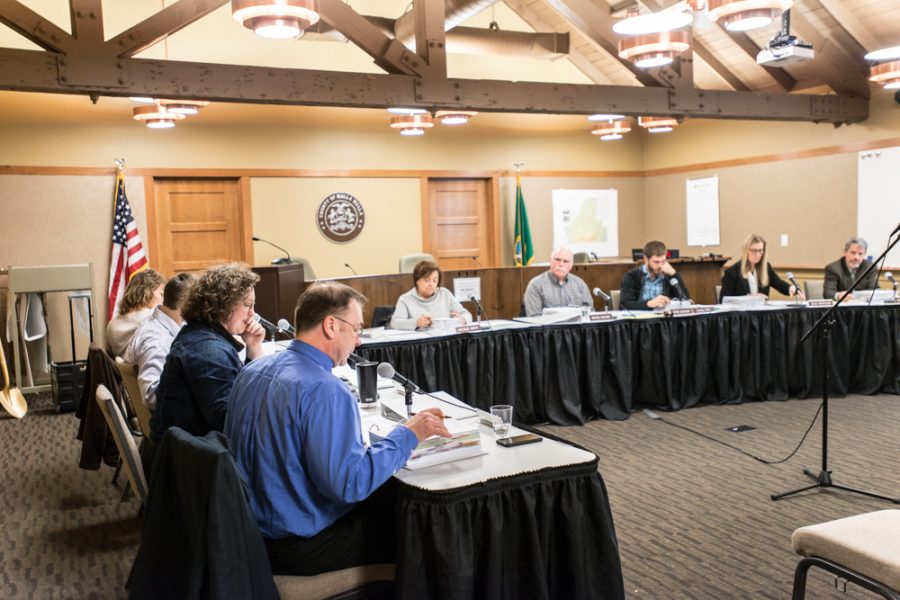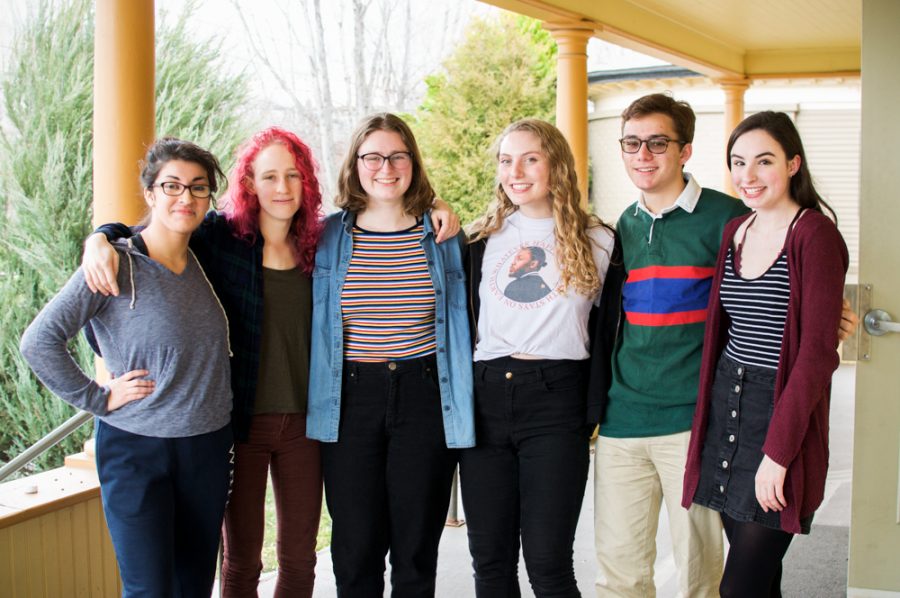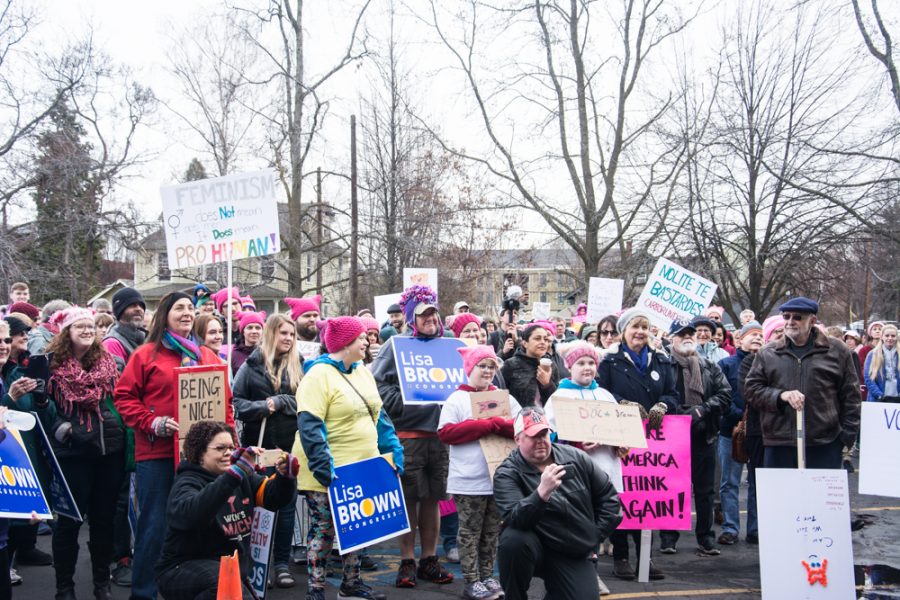What’s wrong with the United States government? For members of the Walla Walla Tea Party Patriots, it’s out of control government spending.
The group held a tax day rally on Friday, April 15 to advocate the importance of fiscal responsibility and limited government. Martha Clinehens, the group’s spokesperson, believes that the government needs to distinguish between budgetary items that are essential, such as national defense, and the items that are merely nice to have.
“Hard, tough decisions are going to have to be made,” she said. “There are a lot of things that I agree with and that you agree with that will have to be cut.”
For MoveOn.org, the issue is corporate tax dodging. The group, which staged protests across the country, rallied at Heritage Square Park on Monday, April 18 to object to government cuts in social services and to the fact that many large American corporations don’t pay income tax.
“The Republicans are cutting back and taxing working people,” said rally organizer June McKenzie. “People are really feeling the pinch on tax day, but there are a lot of corporations that aren’t feeling the pinch today.”


McKenzie said that many of the U.S.’s largest corporations, including General Electric, Exxon-Mobil and Bank of America, paid no income tax in the past year. At the rally, a group of approximately 30 protesters gathered for speeches before marching down to Walla Walla’s Bank of America branch to deliver a tax bill to the company. McKenzie believes that tax revenues from Bank of America and other companies would bridge much of the budget deficit, which was estimated at 1.65 trillion for the 2011 fiscal year.
Clinehens disagreed with this analysis, saying that the U.S. has a spending problem, not a taxation problem. She believes that spending levels are simply too high for increases in taxation to make up for the deficit.
“The federal government cannot tax its way out of its fiscal problem,” she said. “A very serious look at reducing or cutting programs is essential.”
The Tea Party rally presented this theme through speeches at their rally, which drew about 150 people in spite of heavy rain. Keynote speaker Reverend Wayne Perryman said that politicians in Washington, D.C. are out of touch with average Americans.
“We need to remind the politicians who they work for,” he said. “The Tea Party is a movement that’s saying, ‘Enough is enough.'”
The Tea Party movement started in 2009 and presents itself as a grassroots movement of fiscally conservative Americans who are frustrated with D.C. insiders, increasing taxes and government spending. Much of the movement’s success in attracting people has been attributed to its ability to connect with voters who are frustrated by a political system dominated by special interests.
This attraction has been a source of frustration for activists on the left. Since the 2008 election, American liberals and the Democratic Party have been criticized for lacking a cohesive narrative. Progressive and liberal writers and columnists have said that the left needs a story to counter the Tea Party’s belief that free markets, limited government and fiscal responsibility will lead to a prosperous America.
MoveOn.org’s protests across the country might be the beginning of a unified liberal narrative. The idea behind these protests : that corporations need to pay income tax like average citizens do : has its roots in a movement called U.K. Uncut. U.K. Uncut is a loosely organized activist coalition which has staged protests outside large businesses across the United Kingdom which don’t pay income tax.
After this idea garnered media attention, it spread to the United States. U.S. Uncut is now a national network, which works with MoveOn.org and other liberal organizations to call attention to the disparity between corporate and citizen tax rates. These protests also tell a clear story : government has an obligation to take care of its citizens, and if corporations paid their fair share, the country will be able to look out for everyone.
In spite of their ideological differences, the Tea Party and U.S. Uncut share structural similarities. Both groups decry a government overrun with lobbyists and special interests. Both groups are clear about the changes they want to see happen, but are limited in their ability to make those changes happen. Even with the Republican and Tea Party victories in the 2010 elections, Clinehens doesn’t feel that the political situation has improved much.
“I think overall, we’re still in a very bad position,” she said.
Though the Tea Party is portrayed as a conservative movement, Clinehens and her fellow Tea Party activists were critical of both parties’ lack of action on reducing spending.
“There’s been a lot of pointing fingers, but no agreed upon plan,” she said.
Attendees at the U.S. Uncut rally were similarly frustrated with the state of political discourse in Washington, D.C.
“It’s not going to be a democracy if [special interests] own Congress and the media,” said Walla Walla resident Norm Osterman, who attended the rally.
For this fact to change, more Americans will need to be politically engaged. Clinehens and McKenzie agreed that raising awareness was essential for solving political problems in the United States.
Osterman put it a bit more bluntly.
“People need to wake up,” he said.


















Kathy Corbett • Apr 22, 2011 at 4:46 pm
Thank you so much for covering both of these important rally’s. I was very impressed with the overall tone of article. I think the author has hit on the fact that American citizens have more in common than the mainstream media wants us to believe. Norm Osterman is right, above all we need to wake up and get involved! Thanks again.
Sincerely,
Kathy
TEA Party activist
Rick Tuttle • Apr 21, 2011 at 10:05 pm
Very well written and balanced article.